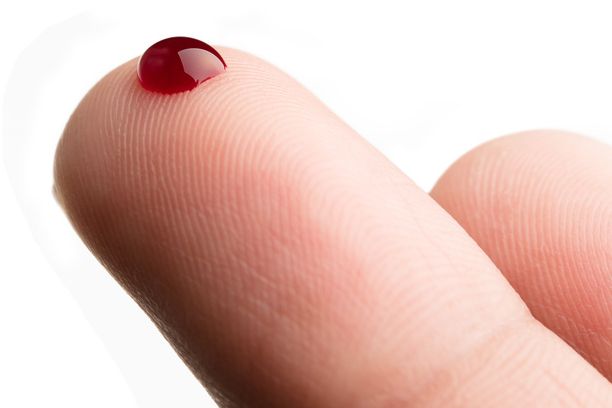
(Vienna, 08 November 2018) Using the Allergy Chip co-developed by MedUni Vienna, sensitisation to allergens can be detected early on. This normally requires a doctor taking a blood sample for subsequent analysis in a laboratory equipped with the Chip. In Austria, provision is excellent and there are enough laboratories offering this new test. Elsewhere, however, there are only a few per country – blood samples are therefore often protected as well as possible, carefully packed, chilled and air-freighted for analysis. That is a complicated and expensive process. A MedUni Vienna team led by lead investigator Rudolf Valenta from the Institute of Pathophysiology and Allergy Research has now shown that this multi-allergen test works just as well with dried blood. Just a few drops of blood dried on a strip of Whatman paper (the extremely absorbent blotting paper most commonly used throughout the world) are enough.
This discovery by the Viennese researchers was inspired by the experience gained from the new-born screening programme run by MedUni Vienna’s Department of Pediatrics and Adolescent Medicine for more than 50 years. In this programme, a small prick of blood is taken from the heel of new-born babies and put onto blotting paper to screen babies for any congenital diseases. "What works well here should also work in the allergy screening developed at MedUni Vienna," say Valenta and study lead author, Victoria Garib.
Dried blood samples provide just as much information as fresh serum
The main finding is as follows: The dried blood samples taken by a doctor produce the same results as analysing fresh serum. And this is true no matter how long the dried specimen has been in a plastic envelope or in the post or at what temperature it was applied. Says Garib: "We measured it at temperatures of +37°C, -20°C and +4°C. The result was always the same." The test involves stamping a small piece out of the paper and mixing it with a liquid in a plastic thimble, filtering out the antibodies in a centrifuge and then applying it to the Allergy Chip.
"This means that we are now giving every doctor in the world the ability to obtain an analysis quickly and easily, even if they only have a few patients with suspected allergies and do not have a laboratory nearby, so that they can help patients quickly," adds Valenta, also clarifying: "Of course, laboratories must not accept dried blood samples sent in by private individuals. A doctor must first establish whether the test is necessary and then take the blood sample properly and send it on." And this would only cost the same as a standard letter, just a few euros. By way of comparison: sending a chilled, correctly protected and packaged blood sample by airmail costs between €250 and €400. At the same time, say the Vienna researchers, it is possible to use the dried blood samples and antibodies obtained from them to evaluate the efficacy of allergy-related immunotherapy treatments and to monitor treatment.
About the Allergy Chip
The Allergy Chip, which was co-developed at MedUni Vienna by Valenta's working group, detects potential allergies by means of fluorescent-labelled antibodies. Currently, serum can be tested for more than 100 allergens at once, ranging from apple to pollen, from grasses, food allergens and bee stings right through to various essentially harmless substances in the environment, such as house dust. It is especially important to identify allergies in children at an early stage, to prevent subsequent chronic diseases such as asthma, for example. The Chip has now become established worldwide as the safest method for early detection of allergies.
Service: Journal of Allergy and Clinical Immunology„Determination of IgE and IgG reactivity to more than 170 allergen molecules in paper dried blood spots“. V. Garib, E. Rigler, F. Gastager, R. Campana, Y. Dorofeeva, P. Gattinger, Y. Zhernov, M. Khaitov, R. Valenta.
DOI: https://doi.org/10.1016/j.jaci.2018.08.047.
The present study was produced within the framework of the International Network of Universities for Molecular Allergology and Immunology (www.inunimai.org), which currently incorporates ten countries. In addition to Austria, these are Armenia, Azerbaijan, Belarus, Georgia, Kazakhstan, Lithuania, Russia, the Ukraine and Uzbekistan. The study was funded by the Austrian Science Fund FWF (http://www.allergy-research-program.at/cms/).